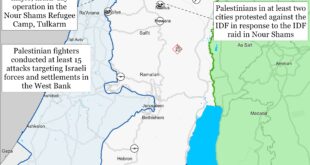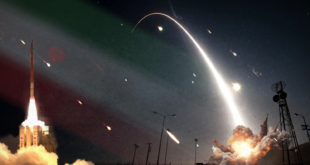BAGHDAD (Reuters) — US Defence Secretary Donald Rumsfeld said on Sunday that American forces would not defeat Iraq’s rebels but would make way for Iraqis to put down an insurgency that could go on for a decade or more.
His remarks came on another day of bloodshed on which three suicide attacks around the northern city of Mosul killed more than 30 people, many of them police officers, highlighting the task faced by Iraq’s US-trained forces against a Sunni Arab revolt, backed by foreign Islamists, against the new Shiite-led government.
“That insurgency can go on for any number of years,” Rumsfeld said in a US television interview. “Insurgencies tend to go on five, six, eight, ten, twelve years. Foreign forces are not going to repress that insurgency.
“We’re going to create an environment that the Iraqi people and the Iraqi security forces can win against that insurgency.”
In the space of a few hours a suicide car bomber wrecked a police headquarters, killing 12, an attack on an Iraqi army base killed at least 16 people and five police officers were killed when a bomber walked into Mosul’s main hospital and blew himself up.
The attack on the hospital’s police post damaged the ward where casualties had been brought from the earlier incidents, responsibility for which was claimed by Al Qaeda’s Iraq wing, led by Abu Mussab Zarqawi.
In Baghdad, six policemen were killed by a suicide bomber as they were pulling into their base, police said. The deputy head of a city police department was also assassinated.
Handover
Handing over to Iraqi forces and withdrawing the US army that invaded to topple Saddam Hussein two years ago is a key policy for President George W. Bush as opinion polls show Americans turning against a project that many believed would rapidly produce a stable, pro-Washington government in Baghdad.
The deaths of six US troops, some of them women, in a suicide bomb attack in Fallujah on Thursday took the death toll above 1,730. Another soldier was killed in Baghdad on Sunday.
Rumsfeld said insurgent attacks were becoming deadlier.
The US Middle East commander, General John Abizaid, said: “It’s clear to me that by the… early part of next spring next year to the summer of next year you’ll see Iraqi security forces move into the lead in the counterinsurgency fight.”
However, in a US television interview, he added: “That doesn’t mean that I’m saying we’ll come home by then.”
The insurgency appears driven partly by fears among some in Saddam’s formerly dominant Sunni Arab minority that they will lose out in an Iraq run by a Shiite majority government. It has drawn support from foreign Arabs, most of whom are Sunnis, who want to wage holy war against the West and the Shiites.
US commanders say Iraqi forces will need their support for a long time. The strength of Sunni rebels has raised concerns that they would sorely test troops fielded by a Shiite- and Kurdish-dominated government in any civil war.
Headquarters wrecked
The Mosul car bomber drove at a police headquarters at Bab Toob in the city centre, striking a rear wall to bring down a section of the old, two-storey building and devastate surrounding market stalls as people started the working day.
Ten police officers and two civilians were killed and eight people were wounded, the US military in Mosul said in a statement.
The defence ministry said a suicide bomber killed 15 people and wounded 15, mostly civilians, at an army post at Kasak, near Mosul. The US military put the dead at 16. Soldiers turned the bomber away from the base and he walked toward a crowd of civilians, the ministry said in a statement.
Medical staff in Mosul said most of the casualties were building workers from the base.
Bush told Iraqi Prime Minister Ibrahim Jaafari in Washington on Friday there would be no timetable for troop withdrawal, despite pressure from opposition Democrats who accuse Bush of leading US troops into a “quagmire” in Iraq.
He is due to make a keynote speech on Iraq on Tuesday.
Responding to a report in a British newspaper, quoting unnamed Iraqi sources, that US officials this month met purported insurgents, US and Iraqi officials repeated that there are continual consultations with tribal leaders, clerics and others who profess to represent elements of the insurgency.
However, they were adamant that these were not negotiations and any talks had not involved the most violent groups such as Ansar Sunna, named by the Sunday Times, or Zarqawi’s group.
Rumsfeld said: “Meetings take place all the time.”
 Eurasia Press & News
Eurasia Press & News



